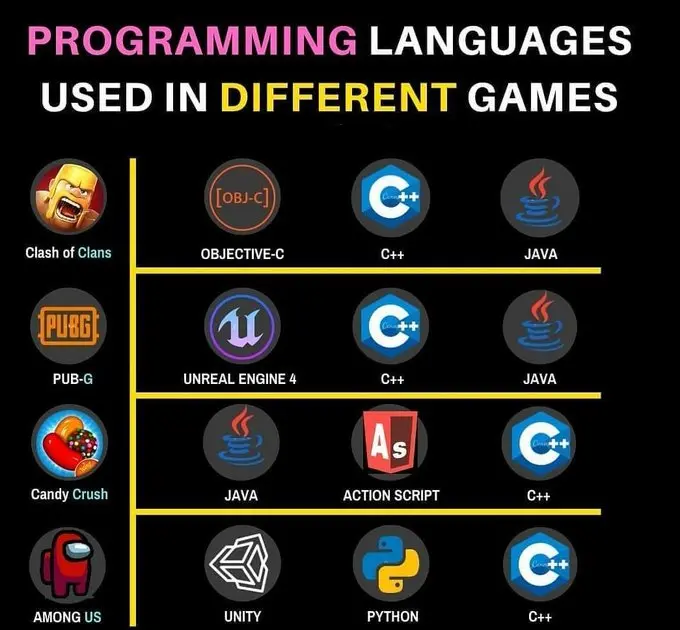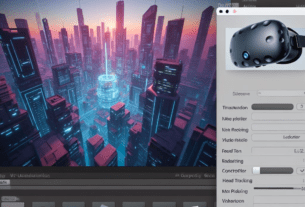
How to Become a Professional Game Developer
Introduction
The world of game development is vast and ever-evolving, with opportunities for creativity, innovation, and career growth. Becoming a professional game developer requires a blend of technical expertise, creative vision, and perseverance. This guide provides a comprehensive roadmap for aspiring game developers, detailing the necessary skills, educational pathways, and steps to enter and thrive in the industry.
Understanding Game Development
Game development is the process of creating video games, encompassing various disciplines such as design, programming, art, audio, and testing. It involves conceptualizing the game, creating the assets, programming the gameplay mechanics, and ensuring the final product is enjoyable and bug-free. Each aspect of game development plays a crucial role in delivering a cohesive and engaging experience for players.
Skills Required

Technical Skills
- Programming Languages: Proficiency in languages like C++, C#, and Python is essential for developing game mechanics and systems.
- Game Engines: Familiarity with engines such as Unity, Unreal Engine, and Godot is crucial for building and deploying games.
- Software and Tools: Knowledge of tools like Blender, Photoshop, and audio software is important for creating game assets.
Creative Skills
- Game Design Principles: Understanding the fundamentals of game design, including mechanics, dynamics, and aesthetics.
- Storytelling: Crafting compelling narratives and character development.
- Artistic Skills: Proficiency in 2D/3D art, animation, and visual effects.
Soft Skills
- Communication: Effectively conveying ideas and feedback.
- Problem-Solving: Addressing and resolving issues that arise during development.
- Teamwork: Collaborating with other developers, artists, and designers.
Educational Pathways
Formal Education
- Degrees and Courses: Pursuing degrees in computer science, game design, or related fields can provide a solid foundation.
- Specialized Programs: Enrolling in game development programs or bootcamps.
Self-Learning Resources
- Online Courses: Platforms like Coursera, Udemy, and Khan Academy offer courses in game development.
- Tutorials and Books: Utilizing resources such as YouTube tutorials and books by industry experts.
Technical Skills
Programming Languages

- C++: Widely used for its performance and control over system resources.
- C#: Commonly used with Unity for scripting game mechanics.
- Python: Useful for prototyping and scripting.
Game Engines

- Unity: Popular for its versatility and extensive community support.
- Unreal Engine: Known for its high-quality graphics and capabilities.
- Godot: Open-source and beginner-friendly.
Software and Tools
- Blender: For 3D modeling and animation.
- Photoshop: For creating textures and 2D art.
- Audacity: For audio editing.
Creative Skills
Game Design Principles
- Mechanics: The rules and systems that define gameplay.
- Dynamics: The interactions between mechanics and player actions.
- Aesthetics: The visual and auditory elements that enhance the experience.
Storytelling and Narrative Development
- Plot Development: Creating engaging story arcs.
- Character Development: Designing memorable and relatable characters.
- World-Building: Constructing immersive game worlds.
Artistic Skills
- 2D Art: Creating sprites, textures, and UI elements.
- 3D Art: Modeling, rigging, and animating characters and environments.
- Animation: Bringing characters and objects to life with movement.
Soft Skills
Communication
- Verbal and Written: Clearly expressing ideas and instructions.
- Feedback: Giving and receiving constructive criticism.
Problem-Solving
- Debugging: Identifying and fixing code issues.
- Optimization: Improving performance and efficiency.
Teamwork and Collaboration

- Project Management: Coordinating tasks and deadlines.
- Conflict Resolution: Managing disagreements and finding solutions.
Building a Portfolio
A strong portfolio showcases your skills and projects, making you stand out to potential employers. Include completed games, code samples, art assets, and design documents. Highlight your role in each project and any challenges you overcame. Use platforms like GitHub, ArtStation, and personal websites to display your work.
Gaining Experience

Internships and Apprenticeships
- Industry Exposure: Gaining practical experience and learning from professionals.
- Networking: Building connections within the industry.
Freelancing
- Project-Based Work: Working on diverse projects to build a versatile portfolio.
- Client Interaction: Developing client management skills.
Participating in Game Jams
- Rapid Prototyping: Creating games within a limited timeframe.
- Team Collaboration: Working with others to develop innovative ideas.
Networking
Building a network of industry contacts is vital for career growth. Attend conferences like GDC (Game Developers Conference) and PAX (Penny Arcade Expo). Join online communities such as Reddit, Discord, and LinkedIn groups. Engage with other developers, share your work, and seek advice.
Job Hunting

Searching for Opportunities
- Job Boards: Sites like Indeed, LinkedIn, and Glassdoor list game development jobs.
- Company Websites: Checking career pages of game studios.
Preparing for Interviews
- Practice Questions: Familiarize yourself with common interview questions.
- Portfolio Review: Be prepared to discuss your work in detail.
Creating a Standout Resume and Cover Letter
- Tailored Applications: Customize your resume and cover letter for each job.
- Highlighting Skills: Emphasize relevant skills and experiences.
Working in the Industry
Different Roles
- Programmer: Writing code and implementing gameplay mechanics.
- Designer: Creating game concepts and mechanics.
- Artist: Developing visual assets and animations.
Company Culture
- Work Environment: Understanding the dynamics of different studios.
- Team Dynamics: Collaborating with diverse teams.
Career Progression
- Skill Development: Continuously improving your abilities.
- Advancement Opportunities: Seeking promotions and new challenges.
Freelancing and Indie Development

Benefits and Challenges
- Flexibility: Setting your own schedule and projects.
- Financial Risks: Managing inconsistent income.
Starting Your Own Indie Studio
- Business Planning: Creating a business plan and budget.
- Funding: Seeking investors or crowdfunding.
Marketing and Selling Your Game
- Promotion: Using social media, press releases, and events.
- Sales Platforms: Distributing on Steam, itch.io, and other platforms.
Continuous Learning and Improvement
Keeping Up with Industry Trends
- Research: Reading industry news and reports.
- Events: Attending workshops and seminars.
Enhancing Your Skills
- New Tools and Technologies: Learning new software and programming languages.
- Feedback: Seeking and incorporating constructive criticism.
Seeking Feedback and Mentorship
- Mentors: Finding experienced professionals for guidance.
- Peer Review: Engaging with other developers for feedback.
Challenges and Solutions
Common Challenges
- Burnout: Managing workload and stress.
- Technical Issues: Troubleshooting and resolving problems.
Strategies to Overcome Challenges
- Time Management: Prioritizing tasks and balancing work-life.
- Support Systems: Building a network of support.
Future of Game Development
Emerging Technologies
- VR and AR: Exploring virtual and augmented reality.
- AI: Integrating artificial intelligence in game development.
Predictions for the Future
- Market Trends: Anticipating industry shifts and consumer preferences.
- Innovation: Embracing new tools and methodologies.
Personal Stories and Case Studies
Success stories from professional game developers highlight the diverse paths and experiences in the industry. These stories provide inspiration and practical insights into overcoming challenges and achieving success.
Expert Insights
Advice from industry professionals emphasizes the importance of persistence, continuous learning, and networking. Tips for aspiring game developers include focusing on building a strong portfolio, seeking mentorship, and staying updated with industry trends.
Conclusion
Becoming a professional game developer is a rewarding journey that requires dedication, continuous learning, and a passion for gaming. By developing the necessary skills, building a strong portfolio, gaining experience, and networking, aspiring developers can carve a successful career in the dynamic and exciting world of game development.





These are actually impressive ideas in concerning blogging.
You have touched some good things here. Any way keep up wrinting.
Here is my webpage – 토토수색대
I don’t know if it’s just me or if perhaps everyone else experiencing issues with your website.
It appears like some of the written text on your
content are running off the screen. Can someone else please
comment and let me know if this is happening to them too?
This could be a issue with my internet browser because I’ve had
this happen before. Kudos
my webpage :: 카지노메이비